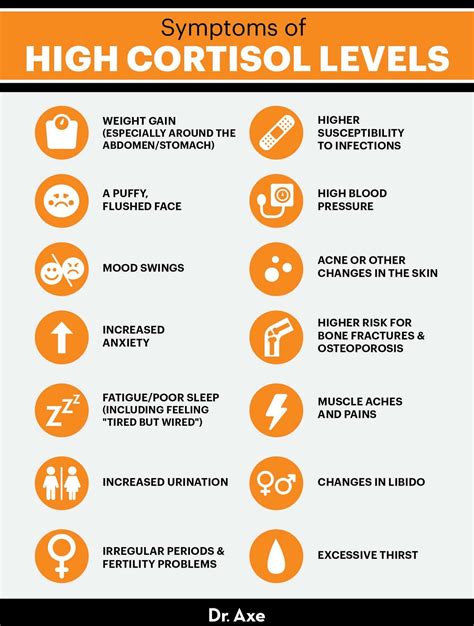Intro
Lower cortisol levels naturally with 5 expert tips, managing stress, anxiety, and adrenal fatigue through lifestyle changes, diet, and relaxation techniques.
Cortisol is often referred to as the "stress hormone" because its levels increase in response to stress. It plays a vital role in various bodily functions, including metabolism, immune response, and helping the body respond to stress. However, chronically elevated cortisol levels can have negative effects on the body, such as weight gain, insomnia, and an increased risk of chronic diseases like diabetes and heart disease. Understanding and managing cortisol levels is crucial for maintaining overall health and well-being.
The importance of managing cortisol levels cannot be overstated. When cortisol levels are in balance, the body functions optimally. However, when cortisol levels are consistently high, it can lead to a range of health issues. This is why it's essential to learn about the factors that influence cortisol levels and the strategies that can help manage them. By doing so, individuals can take proactive steps towards protecting their health and improving their quality of life.
Effective management of cortisol levels involves a combination of lifestyle changes, dietary adjustments, and stress management techniques. It's about adopting a holistic approach that addresses the physical, emotional, and psychological aspects of health. By exploring the different facets of cortisol management, individuals can develop a personalized plan that suits their needs and lifestyle. This not only helps in reducing the risks associated with high cortisol levels but also promotes overall wellness and resilience.
Understanding Cortisol

Cortisol is a steroid hormone that is produced by the adrenal glands. It plays a crucial role in the body's response to stress, regulating blood sugar levels, and aiding in the metabolism of fat, protein, and carbohydrates. Cortisol levels typically follow a circadian rhythm, peaking in the morning and decreasing at night. However, this rhythm can be disrupted by various factors, including chronic stress, lack of sleep, and certain medications.
Factors Influencing Cortisol Levels
Several factors can influence cortisol levels, including: - Stress: Physical or emotional stress can cause a significant increase in cortisol levels. - Sleep: Poor sleep quality or duration can disrupt the normal cortisol rhythm. - Diet: Consuming high amounts of sugar, caffeine, and processed foods can lead to increased cortisol levels. - Exercise: While regular exercise can help reduce cortisol levels, intense or prolonged exercise can increase them.Managing Cortisol Levels

Managing cortisol levels requires a multi-faceted approach that includes dietary changes, stress reduction techniques, and lifestyle modifications. Here are some tips to help manage cortisol levels:
- Practice Stress Reduction Techniques: Yoga, meditation, and deep breathing exercises can help reduce stress and lower cortisol levels.
- Get Enough Sleep: Aim for 7-9 hours of sleep per night to help regulate cortisol levels.
- Exercise Regularly: Engage in moderate-intensity exercise, such as walking or cycling, to help reduce cortisol levels.
- Eat a Balanced Diet: Focus on whole, unprocessed foods, including fruits, vegetables, whole grains, lean proteins, and healthy fats.
- Limit Caffeine and Sugar: Both can cause a spike in cortisol levels, so it's essential to consume them in moderation.
Dietary Considerations
Diet plays a significant role in managing cortisol levels. Certain foods can help reduce cortisol, while others can increase it. Foods that can help lower cortisol levels include: - Leafy greens, such as spinach and kale - Fatty fish, like salmon and tuna - Sweet potatoes - Berries, such as blueberries and strawberries - Nuts and seeds, like almonds and chia seedsStress Management Techniques

Stress management is critical for maintaining healthy cortisol levels. Here are some effective stress management techniques:
- Mindfulness Meditation: Focuses on being present in the moment, without judgment.
- Yoga: Combines physical movement with deep breathing and meditation techniques.
- Deep Breathing Exercises: Can help calm the mind and reduce stress.
- Journaling: Writing down thoughts and feelings can help process and release stress.
The Importance of Self-Care
Self-care is essential for managing stress and cortisol levels. It involves engaging in activities that promote relaxation and enjoyment, such as: - Reading - Listening to music - Taking a warm bath - Getting a massage - Spending time in natureConclusion and Next Steps

In conclusion, managing cortisol levels is crucial for maintaining overall health and well-being. By understanding the factors that influence cortisol levels and implementing effective management strategies, individuals can reduce their risk of chronic diseases and improve their quality of life. It's essential to remember that managing cortisol levels is a long-term process that requires patience, dedication, and a holistic approach.
We invite you to share your thoughts and experiences on managing cortisol levels. What strategies have you found most effective in reducing stress and promoting overall well-being? Share your comments below, and let's work together to create a community that prioritizes health and wellness.
What are the symptoms of high cortisol levels?
+High cortisol levels can cause a range of symptoms, including weight gain, insomnia, mood changes, and an increased risk of chronic diseases like diabetes and heart disease.
How can I test my cortisol levels?
+Cortisol levels can be tested through a blood test, saliva test, or urine test. It's essential to consult with a healthcare professional to determine the best testing method for your individual needs.
Can cortisol levels be managed through lifestyle changes alone?
+While lifestyle changes, such as dietary adjustments and stress management techniques, can help manage cortisol levels, they may not be enough to address underlying health issues. It's essential to consult with a healthcare professional to develop a comprehensive plan for managing cortisol levels.
